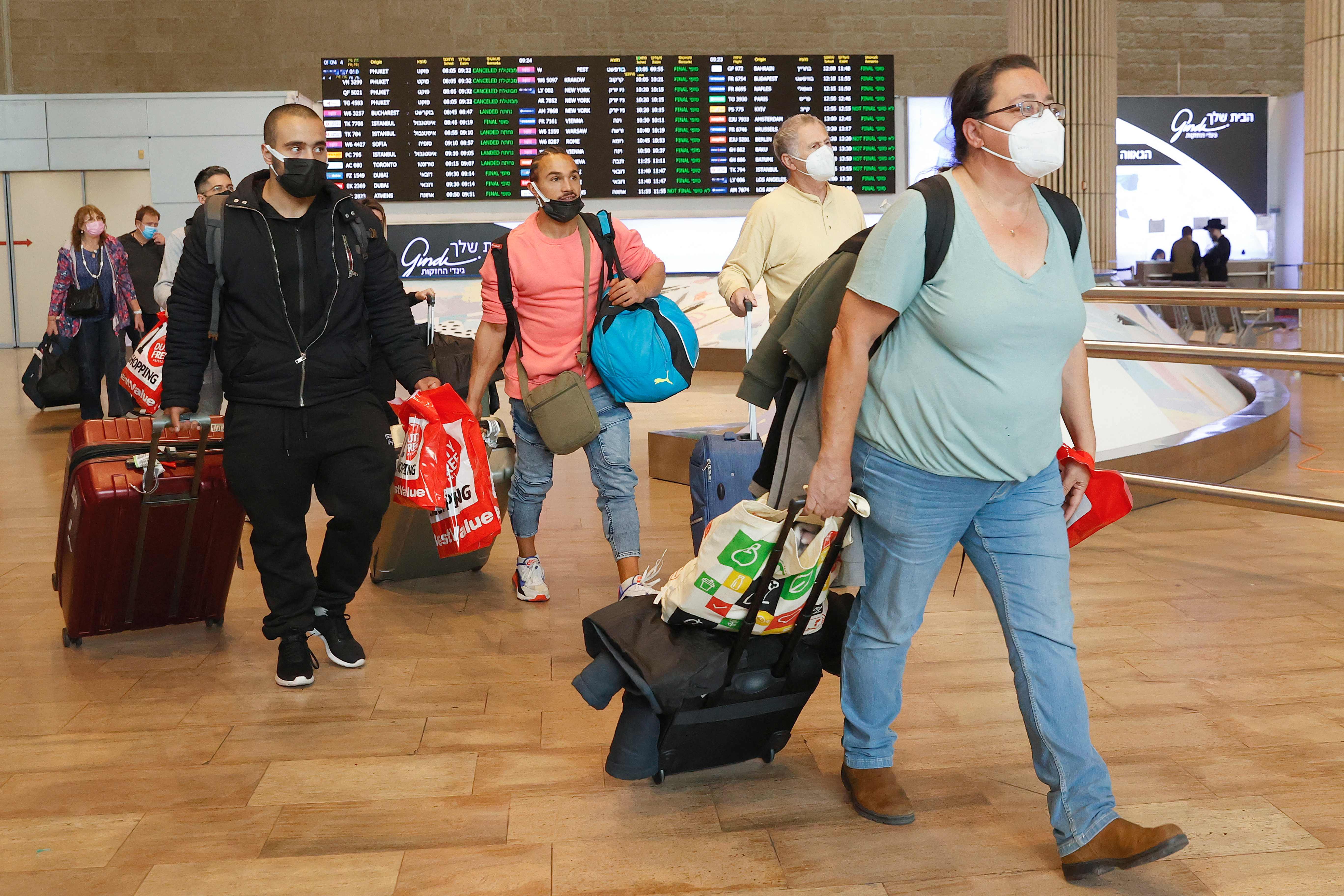Israel on ‘verge of state of emergency’ over new coronavirus variant
Country extends ban on travel to and from Africa after new strain detected in three travellers

Your support helps us to tell the story
From reproductive rights to climate change to Big Tech, The Independent is on the ground when the story is developing. Whether it's investigating the financials of Elon Musk's pro-Trump PAC or producing our latest documentary, 'The A Word', which shines a light on the American women fighting for reproductive rights, we know how important it is to parse out the facts from the messaging.
At such a critical moment in US history, we need reporters on the ground. Your donation allows us to keep sending journalists to speak to both sides of the story.
The Independent is trusted by Americans across the entire political spectrum. And unlike many other quality news outlets, we choose not to lock Americans out of our reporting and analysis with paywalls. We believe quality journalism should be available to everyone, paid for by those who can afford it.
Your support makes all the difference.Israel is on the “verge of a state of emergency”, the country’s prime minister warned, after a worrying new coronavirus variant was detected in at least three people.
The country imposed a travel ban on Friday covering most of Africa after detecting its first case of the omicron variant, also known as B1.1.529, in a traveller who had returned from Malawi.
Scientists are concerned about the new variant, which could be more contagious than the delta strain.
The health ministry said the traveller and two other suspected cases, all of whom had been vaccinated, had been placed in isolation.
“We are currently on the verge of a state of emergency,” prime minister Naftali Bennett said on Friday before expanding a travel ban he announced a day earlier which prohibited the entry of foreigners from seven African countries and prevented Israelis from travelling to them.
Under the broader restrictions, all African nations, except those in north Africa, have been added to Israel’s “red list” of high-risk countries.
According to Arieh Kovler, a political analyst and writer based in Jerusalem, one of the cases detected in Israel was a 32-year-old woman returning from South Africa who was triple vaccinated with Pfizer and had her third dose just two months ago.
Another was a hotel worker from Malawi who had been given her second dose of the AstraZeneca jab in mid-July, while a third infected person had her second Johnson & Johnson dose two months ago, he added.
Downing Street said the UK was still at “an early stage” of understanding the omicron variant and could not yet tell whether the current Covid-19 vaccines available might need updating in order to fight it.
There are fears the variant, detected in South Africa, Botswana, Hong Kong and Israel, could be highly transmissible, more deadly and make vaccines and treatments less effective.
A spokesman for Boris Johnson, asked whether the British government expected a “specific” vaccine to be needed for the variant, told reporters: “We are in an early stage and, as the health secretary said today, there remains a high degree of uncertainty, which is why it is important that the work is being undertaken internationally to understand more about the variant.
“But I would point you back to what the scientific experts - I think it was the chief scientific adviser [Sir Patrick Vallance] – who spoke a while ago about the new technologies in terms of vaccines and the ability to tweak them as required if we need to.”
Additional reporting by agencies




Join our commenting forum
Join thought-provoking conversations, follow other Independent readers and see their replies
Comments